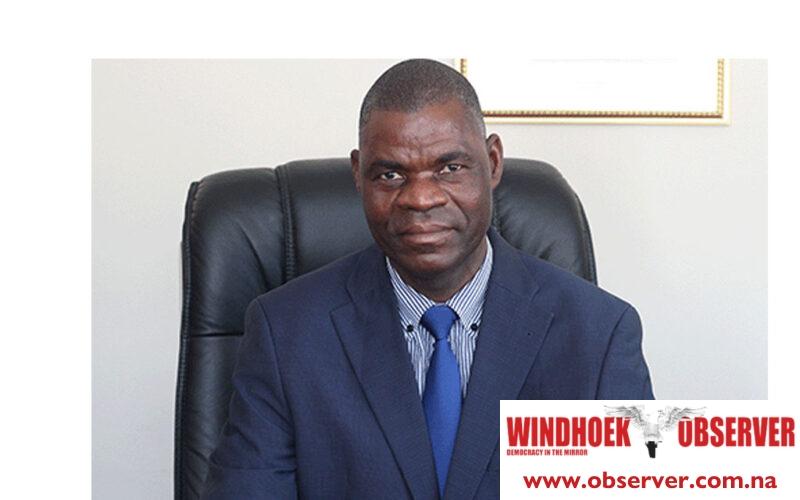Justicia Shipena
Ombudsman Basilius Dyakugha says the British tourist arrested for taking nude photos of San children might not have been aware of the children’s state of dress due to the cultural context of their attire.
He said the way children from communities like the San and Ovahimba dress may appear nude or semi-nude by Western standards, but this is part of their traditional way of life.
“But as you know, our kids in certain communities like the San people and the Himba people, this is their way of life. They don’t dress up properly. If you look at the Himba, their attire is, you can call it in western nations, it’s nude, like they are naked or half naked or something like that,” said Dyakugha.
He said the same applies to the San people, making it difficult to say whether the tourist understood the context or not.
“So I’m not so sure whether they were really, I mean, if this tourist was aware that they are nude or what the situation is,” Dyakugha told Windhoek Observer.
The 65-year-old tourist was arrested on Sunday.
He allegedly instructed San children at the Grashoek Living Museum in Tsumkwe West to remove their clothes and then took photos of them.
Police officers at Maroelaboom confiscated the man’s camera, where some of the nude photos of the children were allegedly found.
Dyakugha said children’s rights are often held in trust by their parents, meaning they cannot consent on their own.
He said that amounts to abuse of children’s rights and added that authorities acted correctly to protect the rights of the children.
When asked if his office had received complaints from marginalised communities like the San or Ovahimba about how people take pictures of them, Dyakugha said no.
However, he said the communities are now aware that tourists use their images to make money.
“So they are now demanding that when you take pictures of them, they must be given consent. You must talk to them so that they can agree whether you take it for free or for payment.”
San community leader Hans Axasi #Eichab condemned the tourist’s actions and called it unethical and degrading.
He spoke out after images showing semi-naked community members circulated without consent.
“You see, for me as a leader, as a chief, it is unacceptable. Why should you? We are not in a circus, we are not in a room where they are, you see, putting us on a podium just so that the others would come and see the barbarians naked. We are human beings. We have got ethics,” #Eichab said.
He said that while children may not fully understand the issue, adults know the line between cultural respect and indecency.
“For a child to be naked, it’s nothing to be ashamed of, for you see their conscience is not that much developed. But we, as elders, know for sure where to draw a line,” he said.
He said those who take and share such images without permission must face consequences.
“These people should be punished, these people should be brought to book. It’s unethical,” he said.
Eichab also criticised how some visitors treat African cultures as inferior.
“There is not a thing like superior culture. We are equal. It is only that they are looking at us with a separate eye,” he said.
He called for clearer rules for tourists visiting indigenous communities. He said there should be mandatory engagement with local leaders before photos are taken.
“Whenever tourists are going around, they cannot just come and take pictures. They need to talk first to the leaders or to the chiefs or whosoever is there in that area so that at the end of the day, we can verify what is acceptable for us.”
He suggested that tourists first stop at a central point where they can get information about community expectations.
“It is high time that really these tourists, before going to a certain area, need to be at a centre where we have got representatives, and then we can tell them that this is ABC and then that’s the rules that are on the ground,” he said.
The environment and tourism ministry also condemned the tourist’s actions.
It said this was a violation of children’s rights to privacy, dignity and protection.
The ministry said the act disrespected the cultural heritage of the San people and broke laws that protect minors.
It also went against ethical guidelines for engaging with indigenous communities.
“It is unacceptable for any visitor, foreign or local, to exploit or objectify indigenous communities or their children for any purpose, including photography.
Respect for human dignity and cultural sensitivity must be central to all tourism activities in our country.”
The ministry called on tour operators, guides and visitors to follow responsible tourism guidelines and behave ethically when engaging with local communities.
It said tourism in Namibia must promote cultural understanding and mutual respect, not exploitation.
The ministry encouraged citizens and tourists to report such acts, saying they would not be tolerated.
The tourist, who entered Namibia on 15 May 2025 for a holiday, appeared in the Grootfontein Magistrate’s Court this week.




